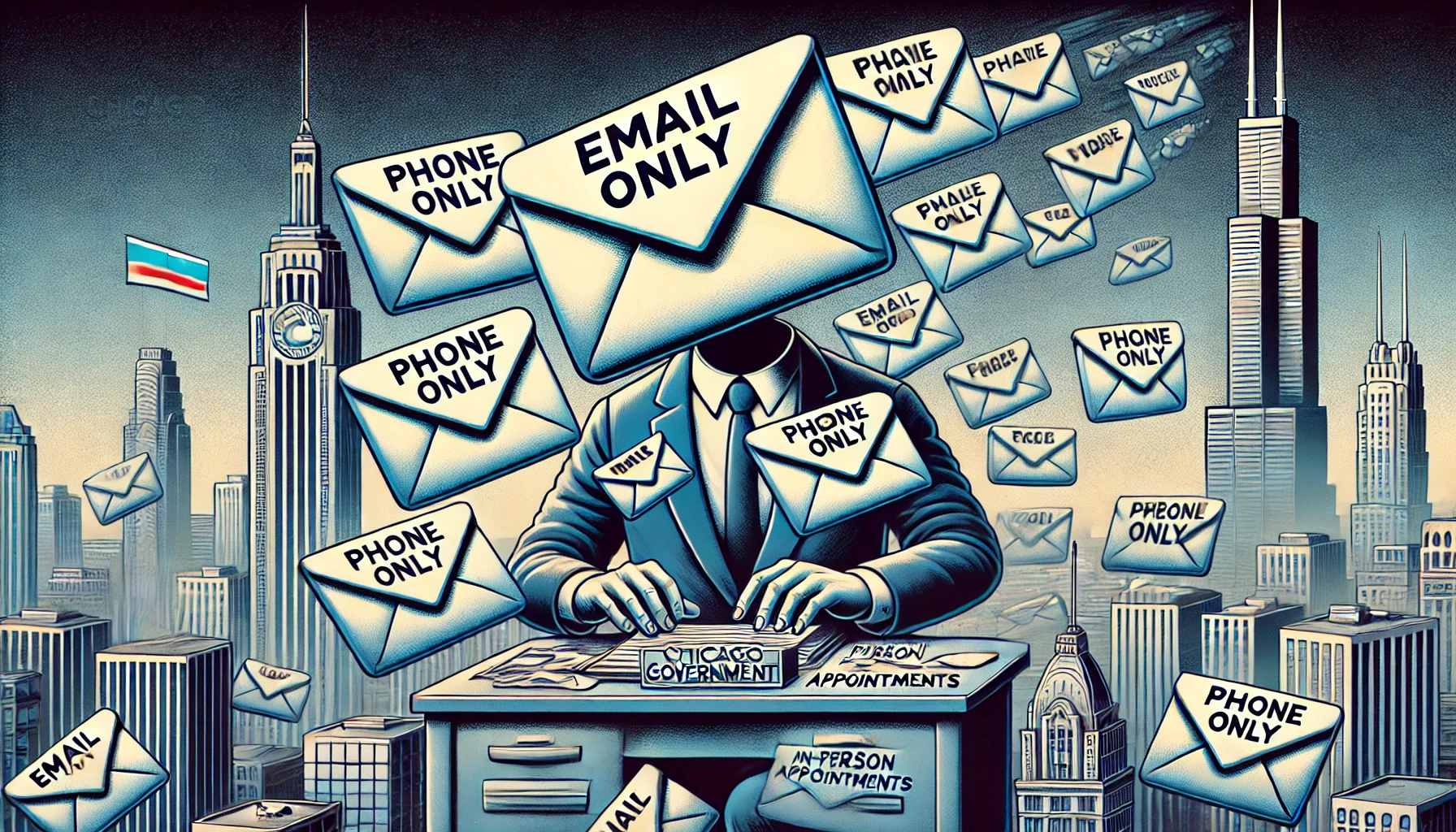By The Brain
In an era where email is the backbone of modern communication, the City of Chicago’s government departments are surprisingly inaccessible through this medium. For residents and stakeholders, this is more than an inconvenience—it’s a glaring symptom of a government actively avoiding accountability.
Numerous residents and advocates have reported their frustration when trying to contact city departments via email, only to discover a deliberate lack of publicly available addresses. Phone lines are inundated, and physical visits are impractical for many, leaving Chicagoans wondering: Why has their city made itself so hard to reach?
The answer may lie in a troubling reality—email creates a paper trail.
Evading Accountability Through Silence
Emails are records, governed by the Freedom of Information Act (FOIA), which mandates that government communications are accessible to the public. By steering residents away from email and toward phone calls or in-person interactions, the city minimizes the creation of records that could later be scrutinized.
“This isn’t about efficiency; it’s about evasion,” says [expert or advocate], a watchdog for government transparency. “By avoiding email communication, the City of Chicago is actively circumventing transparency laws and betraying the public’s trust.”
The Cost of Obfuscation
For residents, the lack of accessible email addresses creates hurdles in addressing critical concerns, from housing issues to public safety inquiries. For journalists and advocacy groups, it’s a direct affront to transparency, making it harder to hold public officials accountable.
More than just an inconvenience, this approach undermines public confidence. It paints a picture of a government more focused on avoiding scrutiny than serving its constituents.
A Pattern of Secrecy?
Chicago’s reluctance to use email fits into a broader narrative of governmental opacity. Over the years, the city has faced criticism for its handling of FOIA requests, redacted documents, and delayed responses. Critics argue that the email blackout is just another tool in a growing arsenal of evasive tactics.
“Transparency isn’t just a checkbox; it’s the foundation of a healthy democracy,” says [source]. “When governments hide behind bureaucracy and refuse to engage with their citizens, they erode trust and accountability.”
Calls for Reform
Advocates are demanding that Chicago reverse its anti-email stance and embrace modern, accessible communication methods. They argue that public servants should not be allowed to dodge transparency simply because technology makes it easier to hold them accountable.
“The city works for its residents, not the other way around,” says [another source]. “Refusing to provide basic email access is not just archaic—it’s unethical.”
What’s Next?
While the city continues its email blackout, Chicagoans are left in limbo, navigating a system designed to frustrate rather than facilitate. Until officials commit to transparency and accountability, the city’s reputation will remain tarnished by secrecy and evasion.
For a government claiming to serve the people, Chicago has a lot of explaining to do—preferably, in an email.


Leave a Reply